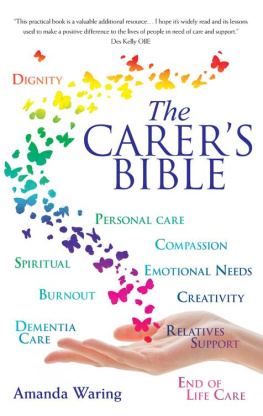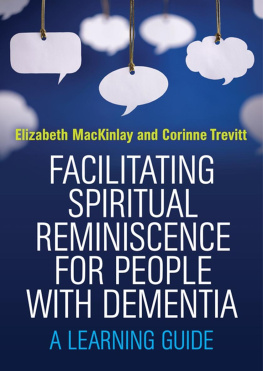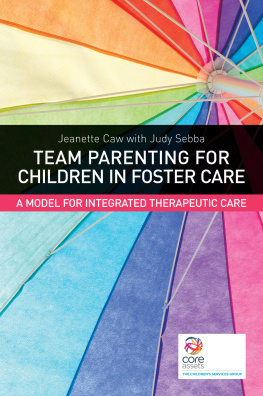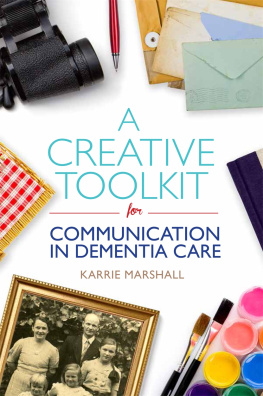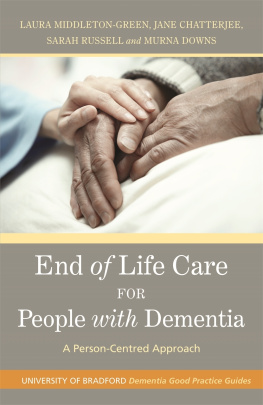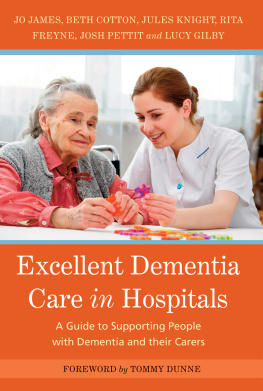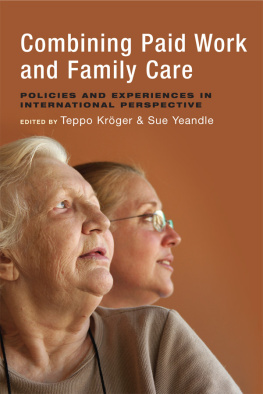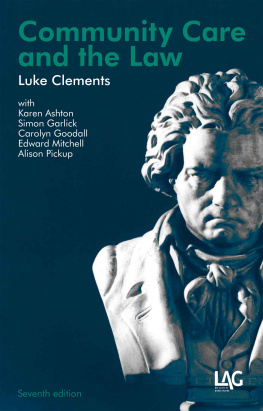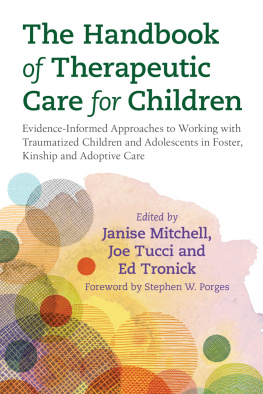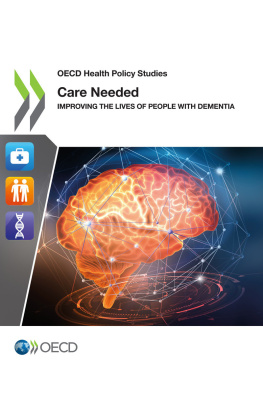My heartfelt thanks to all at Souvenir Press.
Deep gratitude
To the contributors whose expertise and personal testimonies have enhanced The Carers Bible: Cathe Gaskell, Caroline J Benham, Mandi Randall-Cramp, Jo Whitehouse, Liz Blacklock, Elizabeth Purcell and Ernest Hecht.
To all those wonderful carers, staff and elders that I have met throughout my life, bless you for sharing some of your experiences for this book.
To all those who have supported me through my caring journey seen and unseen. To my family, friends, teachers, mentors and extended family who have believed in me and encouraged me through darker days.
and of course Thank you to my son Ben who cares for me
with love
Amanda Waring
Amanda Waring has done so much to raise awareness of the need for dignity, compassion and kindness in care services, drawing on her personal experiences and a gift for communication. It is now five years since she published The Heart of Care Dignity in Action: a guide to person-centred compassionate elder care. She is, without any doubt, well-qualified to build on her immense knowledge and learning to share understanding of the role of caring in this new book, The Carers Bible.
Carers are vital partners in our system of social care. But sadly this is rarely acknowledged and, as a consequence, their contribution is not always valued as it should be. A recent report on The Human Rights of Carers in Northern Ireland published in 2014 by the Northern Ireland Human Rights Commission stated:
Caring can be rewarding and fulfilling as well as demanding. What is important is the need for recognition of the role being played and the support that should be available and easy to access. Too often, obtaining support can simply be a further additional struggle to overcome.
Carers are not a homogenous group. Carers can be all ages from children to the very elderly who are looking after family members. Each carer is an individual who has his or her own story to tell and particular needs.
Whilst there is much that is shared about the experience of caring for a family member it is helpful to be reminded that every caring situation is different. People and their circumstances vary and every caring situation is a personal journey. It is my sense that The Carers Bible is part of the personal journey of Amanda Waring. The reason the words are conveyed so powerfully is because we know that they are drawn from a wealth of personal experience she really knows what she is talking about! She is able to use her knowledge of what it is like to provide personal care and support in ways to offer straight-forward practical guidance for others.
Amandas story is well known: the experience of witnessing a lack of dignity and compassion in the care received by her mother and actress, Dame Dorothy Tutin, turned her into a reluctant, but strident, campaigner. As a campaigner she has turned a negative situation into a positive force to improve the quality of care of older people through her films, teaching and writing. She has used her own resources and networks, passion and charisma to make change. Her first film What Do You See? which features Virginia McKenna makes use of the poem Look Closer by Phyllis McCormack and manages to convey in just 10 minutes so much about how important it is to always see the person in every caring interaction. To always see the person behind the presenting condition or frailty or confusion. I was proud to promote the film to innovative not-for-profit care providers within the membership of the National Care Forum and to encourage all Registered Home Managers to make use of the film in training their staff. Keeping the individual at the heart of care is absolutely fundamental to best practice. In fact, best practice in social care is not possible without it.
Carers do make an immense contribution to society by providing care and support to family members and for some it is a lifelong commitment. We know that at least 6 million people in the UK are providing care and without them the system of social care would probably collapse. However, too often carers feel neglected and undervalued. Getting information at the right time and in the right way can be difficult for many carers. The Carers Bible therefore makes an important contribution to the need for information. It is important to remember that most care takes place in private by people who may not actually define themselves as carers. It is, for the most part, a personal thing and for many carers the term care probably doesnt adequately describe what they do, day in and day out. I believe that their contribution to personal well-being, quality of life and health is vital and deserves to be acknowledged as such.
Amandas writing style makes it seem as though she is speaking directly to you. I have no doubt that The Carers Bible will add significantly to our understanding about how best to offer emotional and spiritual support in practical ways. Her discussion of grief and loss is clearly informed by a depth of knowledge.
The book covers personal care and daily living, care planning, dementia and end of life care in a straight-forward way. The fact that chapters are devoted to emotional and spiritual needs as well as caring for yourself is an added bonus. I was especially pleased to see that Amanda has included a chapter on creativity and activity in the book. Given her own background in the creative arts she is uniquely qualified to highlight the contribution that art, in all its many forms, can make to personal well-being and quality of life. And this is true for both people receiving care and support as well as family carers.
Although the primary readership for the book is likely to be informal, or family, carers the contents will be just as relevant to paid professional carers. The fact that it is written from the perspective of a carer accentuates its value, in my view, as a source of continued learning.
The delivery of compassionate dignified care is a journey towards quality. A journey which has no end as our efforts to attain and maintain standards continue to develop. Our understanding of the importance of care and support to individual quality of life and well-being arguably is getting better all the time. This practical book is a valuable additional resource to the social care library. I hope it is widely read and its lessons used to make a positive difference to the lives of people in need of care and support.
Des Kelly OBE
June 2017
Welcome!
My name is Amanda Waring and I am writing this book for you, the carer. Whether you are a professional carer or a relative caring for an elder loved one, I hope The Carers Bible will be an invaluable and inspiring handbook to ensure that you give the best care that you can, whilst supporting yourself to do this. The Carers Bible is easy to read and includes practical hints and tips, checklists, exercises, solutions to dilemmas, anecdotal advice, voices from the experts, and unique ways to deliver compassionate dignified care to older people right to the end of life, and after death. The Carers Bible addresses spiritual and emotional needs and heartfelt ways to connect with those in your care.
If you are a professional carer my hope is that within these pages you find what you need to educate, motivate and reassure, whilst inspiring you to foster deeper relationships with those you care for. Please ensure that you read the section on How to Care for Yourself and Prevent Burnout

